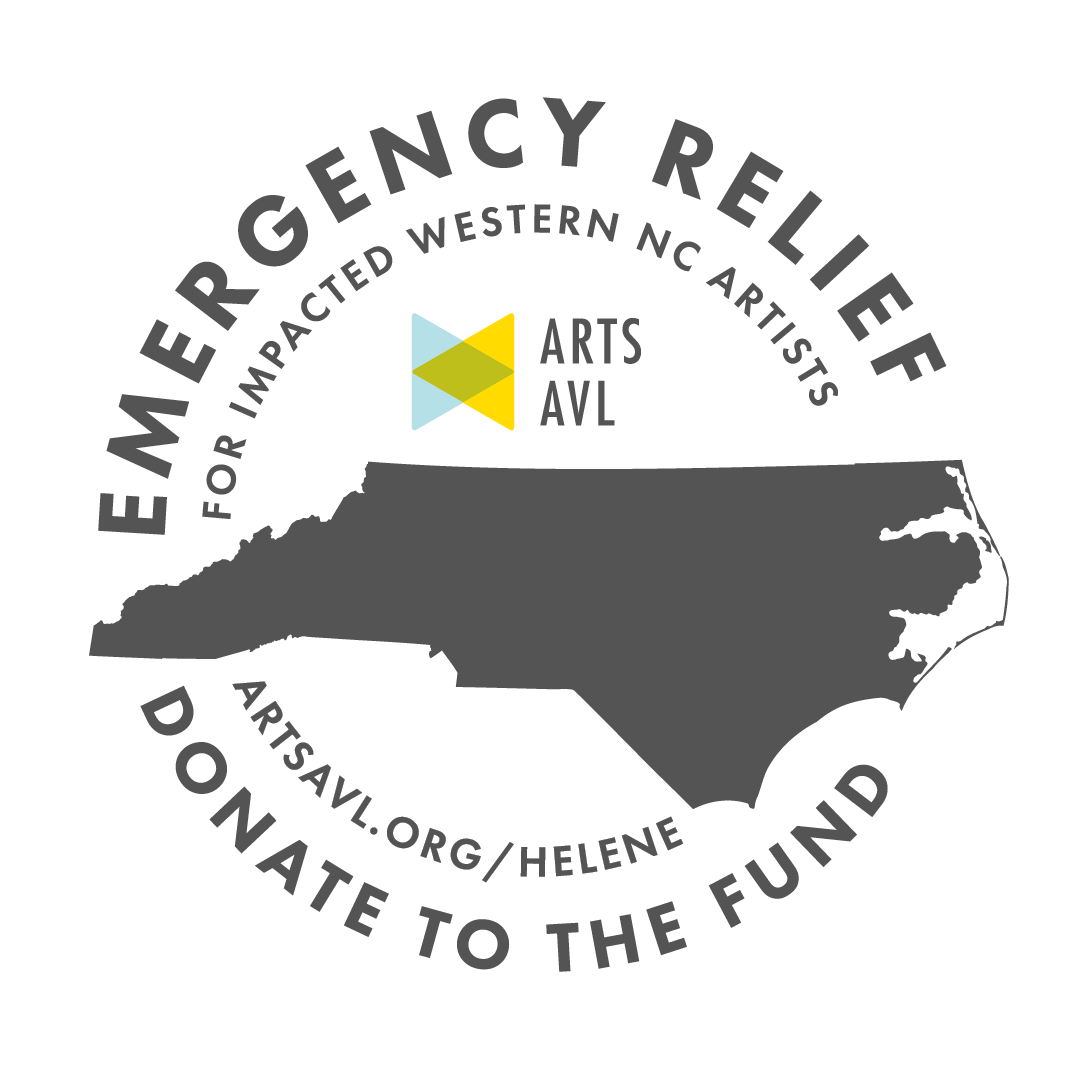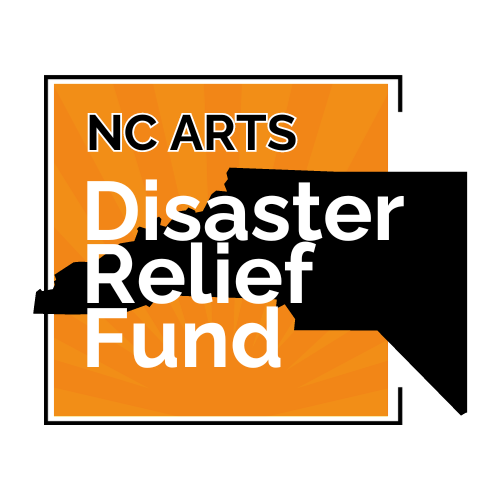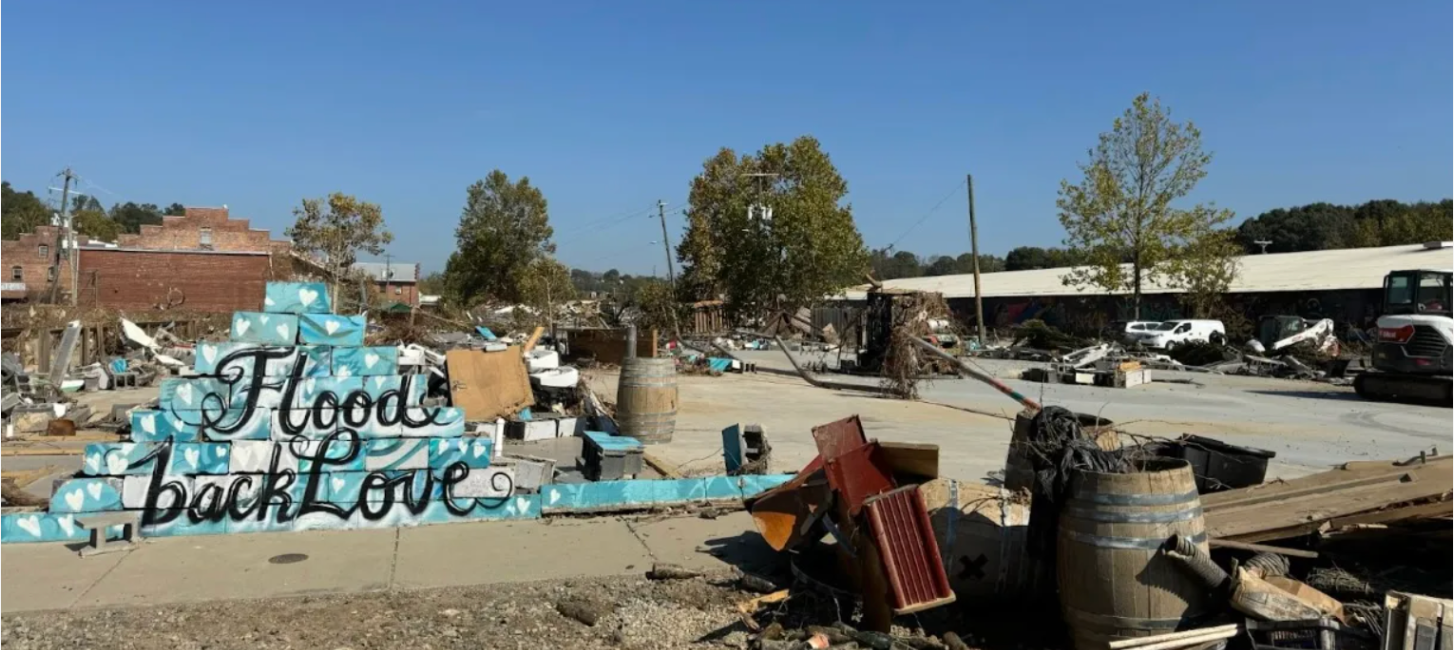
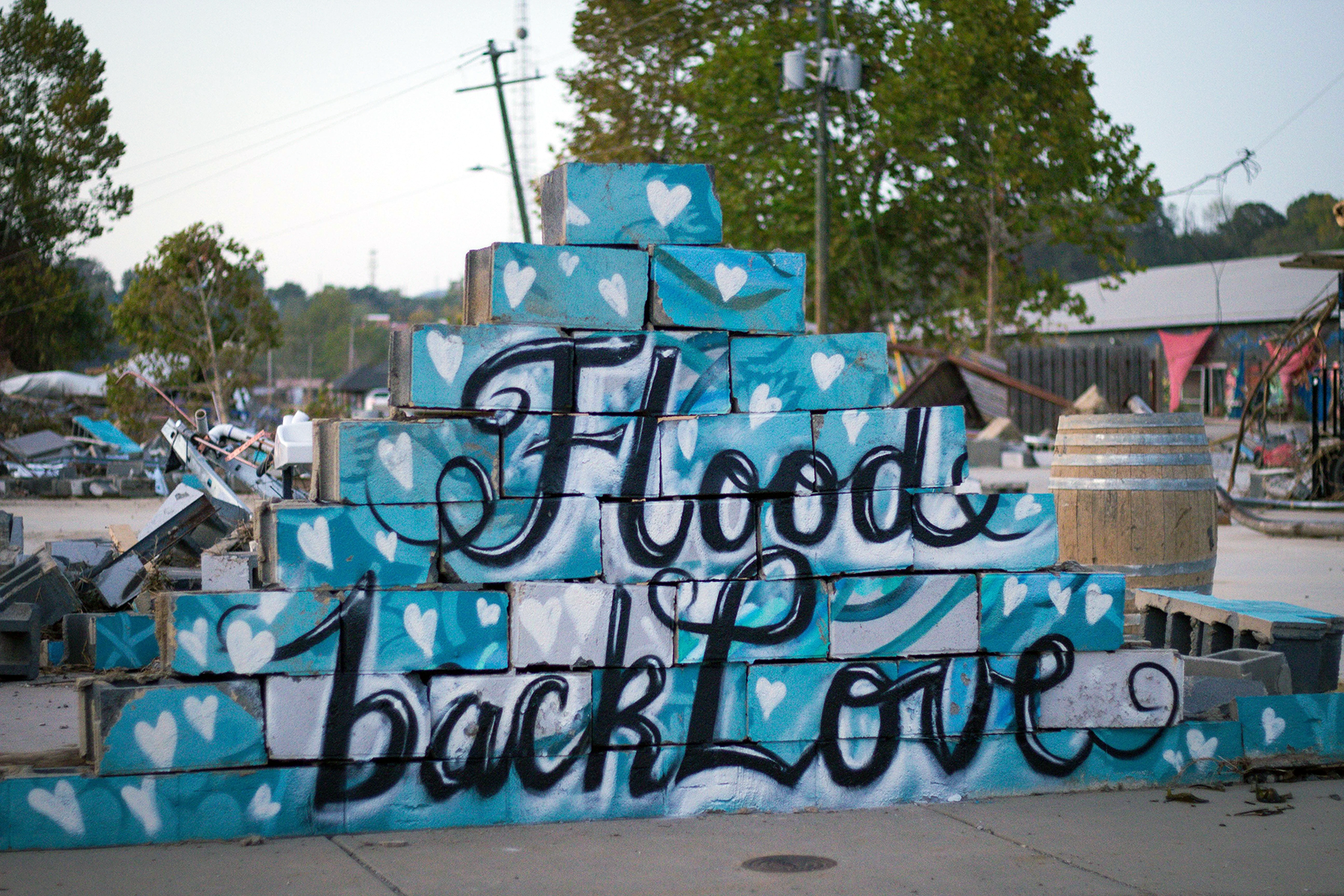
Emergency Support Resources
Artists & Arts Organizations
STEP 1: SUPPORT SERVICES
NCAPER Disaster Resources for Individuals and Arts and Cultural Organizations
Recent changes to FEMA and HENTF have made it easier to deliver aid to communities and individuals and may make aid more accessible to artists, entrepreneurs, self-employed individuals, as well as cultural institutions and arts organizations.
NCAPER Rapid Damage Assessment Forms: If you were impacted, or know artists and cultural institutions impacted for a disaster, please fill out one of the following rapid damage assessment forms.
- Cultural Institutions: Rapid Damage Assessment Form
- Arts Organizations: Rapid Damage Assessment Form
- Individual Artists and Performing Groups: Rapid Damage Assessment Form
With support from the Heritage Emergency National Task Force (HENTF) and in collaboration with the Foundation for Advancement in Conservation (FAIC), these new online assessment forms will help identify where assistance is sought, provide assistance where needed, understand critical needs, and inform recovery efforts moving forward. Learn more about these changes.
Craft Your Commerce Technical Assistance Services
Ongoing Virtual Support Service Calls for Artist and Creatives
Fridays from 11:30am – 12:30pm ET
Register Here
1:1 Technical Assistance Schedule Links
Click on each person’s name to schedule a FREE 1:1 service meeting to get assistance in the following areas.
- Christi Apodaca – Shopify, systems efficiency, ecommerce, shipping
- Cami Leisk – Squarespace, systems efficiency, ecommerce, shipping
- Deanna Lynch – accounting, finances
- Jillian Wright – HR, disaster employment resources
- Paul Heckler – grant writing, application assistance
- Faye D’Avanza – navigating feelings of stress, overwhelm, grief in the face of a disaster
Pro Bono Legal Services
Pisgah Legal Services is also offering free aid in applying for FEMA check their website for clinic offerings.
More Updates from Pisgah Legal Services>>
Implement Legal was born in Asheville, NC, and many of our beloved clients, friends, and family live in Western NC. At the firm, we understand Helene as both a humanitarian crisis and a cultural heritage disaster. Hundreds of artists in the region have lost their life’s work. Their homes and studios are destroyed. Arts institutions are similarly impacted.
We are offering pro bono legal services to artists and arts institutions impacted by the disaster. If you need help, please fill out the form below.
STEP 2: Apply for Support
State & Federal Aid
FEMA’s Individual Assistance Program (Deadline Nov 27)
This program includes disaster relief to artists and self-employed individuals.
Individual Assistance is available to individuals and households in a location with a major disaster declaration. For disasters declared on or after March 22, 2024, FEMA’s Individual Assistance program was expanded to include quicker access to needed funds including simplifying assistance for self-employed individuals such as self-employed artists and entrepreneurs.
Search the most recent disaster declarations at fema.org/disaster to see if your county is listed.
FEMA Fact Sheet on Arts and Culture >>
More FEMA Resources for NC >>
Help for Loss of Tools and Equipment
If you are self-employed, FEMA may be able to provide funds to repair or replace disaster-damaged tools and equipment required for your work. This help is available to a wide range of applicants, including farmers, artists, musicians, mechanics and many other occupations. FEMA may also be able to help if you are an employee and you lost tools or equipment required for your job and not reimbursable by your employer.
Disaster Unemployment Assistance (Deadline Dec 2)
Following a federal disaster declaration because of Hurricane Helene, Disaster Unemployment Assistance (DUA) benefits are now available in 25 counties as well as the Eastern Band of Cherokee Indians. People in these counties have 60 days from October 1 to file an application for Disaster Unemployment Assistance at des.nc.gov. The deadline to apply is December 2.
On Oct. 16, Governor Cooper has raised the weekly unemployment allocation from $350 to $600 for those impacted by Hurricane Helene. Learn More>>
SBA Disaster Assistance
SBA disaster assistance for homeowners, renters, nonprofits, and businesses of all sizes affected by Hurricane Helene.
- Home Disaster Loans (deadline Nov 27): Loans to homeowners or renters to repair or replace disaster-damaged real estate and personal property, including automobiles.
- Business Physical Disaster Loans (deadline Nov 27): Loans to businesses to repair or replace disaster-damaged property owned by the business, including real estate, inventories, supplies, machinery and equipment. Businesses of any size are eligible. Private, non-profit organizations such as charities, churches, private universities, etc., are also eligible.
- Economic Injury Disaster Loans (EIDL) (deadline June 30, 2025): Working capital loans to help small businesses, small agricultural cooperatives, small businesses engaged in aquaculture, and most private, non-profit organizations of all sizes meet their ordinary and necessary financial obligations that cannot be met as a direct result of the disaster. These loans are intended to assist through the disaster recovery period.
The SBA has established a Business Recovery Center at the Asheville Area Chamber of Commerce, located at 36 Montford Ave., to provide in-person assistance for SBA disaster loan applications.
Housing and Urban Development Disaster Resources (HUD)
HUD is now offering federal disaster assistance for disaster victims in the states of North Carolina, South Carolina, and Florida.
HUD will be providing a 90-day moratorium on foreclosures of mortgages issued by the Federal Housing Administration; making mortgage insurance available to disaster victims; offering financing for mortgage and home rehabilitation; increasing spending flexibility for Community Planning and Development Grantees; and ensuring HUD-approved housing counseling agencies are available to assist those impacted by natural disasters.
Tax Relief
The Internal Revenue Service has announced tax relief for individuals and businesses in the entire state of North Carolina that were affected by Hurricane Helene. These taxpayers now have until May 1, 2025, to file various federal individual and business tax returns and make tax payments.
Tenants’ Rights After a Natural Disaster
Recovery appeals, evictions, lease terminations, landlord/tenant disputes, understanding renters rights and insurance policies, providing additional legal help during disaster recovery, and more.
Emergency Grants
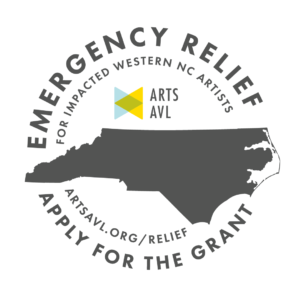
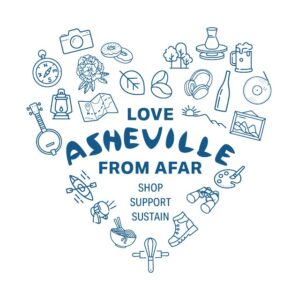
Mountain BizWorks Announces WNC Strong: Helene Business Recovery Fund
The WNC Strong: Helene Business Recovery Fund was created to provide rapid recovery loans to small businesses suffering economic losses related to the impacts of Tropical Storm Helene. The fund is administered by Mountain BizWorks and made possible with support from The Golden LEAF Foundation, and an expanding list of other partners.
The WNC Strong: Helene Business Recovery Fund helps small businesses close the gap between when the disaster strikes and when federal loans, insurance payouts, and other disaster relief funds are approved, or businesses have time to recover and get back to business.
Western North Carolina Small Business Initiative through Appalachian Community Capital
Application window open from Oct. 30 – Nov. 27, 2024
Grants up to $25,000 are available to eligible small businesses located in Western North Carolina.
Small businesses can use the grants to cover expenses related to recovery and reopening in the wake of Hurricane Helene. Eligible uses include repair and replacement of physical damage, environmental cleanup, payment of business-related rents or mortgages, employee retention and hiring, and more. To qualify you must be:
- A for-profit business actively registered with the North Carolina Secretary of State (or a sole proprietorship with an active DBA filing)
- Physically located in one of the following Western North Carolina counties: Avery, Buncombe, Burke, Cherokee, Clay, Graham, Haywood, Henderson, Jackson, Macon, Madison, McDowell, Mitchell, Polk, Rutherford, Swain, Transylvania, or Yancey; or is located in the Qualla Boundary
- Been in existence for at least one year
- Have less than $1,000,000 in annual gross revenue
- Sustained physical or economic damage (not covered by insurance or other funding sources) from Hurricane Helene
- Currently operating or plans to reopen
Always Asheville Fund Grants
Application Opens: October 31, 2024
Application Deadline: November 11, 2024, 5pm
Explore Asheville has established the Always Asheville Fund to help small independent travel and hospitality businesses throughout Asheville and Buncombe County reopen after the devastating impacts and aftermath of Hurricane Helene. Assisting our small businesses with emergency grants will aid in part to sustain this deeply rooted, creative community that we all love.
The Always Asheville Fund will provide emergency microgrants ($5,000 to $10,000) that can be used for operational or re-opening expenses required for businesses to reopen to the public.
CFWNC Emergency and Disaster Response Fund
As the needs are evolving, CFWNC is expanding the EDRF grant program. Nonprofits can apply for either:
- Grants up to $25,000 to be awarded to eligible organizations for frontline human services.
OR - Grants up to $50,000 to (1) eligible organizations that sustained direct facility damage or (2) eligible organizations whose work addresses the effects of Hurricane Helene focused on repair and remediation.
Grants are intended to cover the extraordinary costs of providing emergency, relief or recovery services for eligible organizations affected by the storm. EDRF grants are not for ongoing operational costs, lost revenue, lost wages, or costs that are or will be covered by other sources. Eligibility for emergency public funding (local, state or federal) will be addressed in the application.
Craft Artists Emergency Relief Grant
CERF+ offers $3,000 Emergency Relief Grants to craft artists who experienced a recent and substantially disruptive emergency or disaster.
To qualify for an Emergency Relief Grant, applicants need to be craft artists who are 18 years of age or older. They must have been living and working in the U.S. or U.S. Territories for the past two years. Additionally, they should not have received an Emergency Relief Grant in the previous year or exceeded the maximum lifetime limit of 4 grants.
To apply, visit our website and complete the online application with supporting documentation. Incomplete applications will not be considered. For questions, contact programs@cerfplus.org or (802) 229-2306.
Craft Futures Fund
The Center for Craft is reactivating the Craft Futures Fund grant program for emergency relief so that we may direct essential resources to support and care for the artists and community of Western North Carolina.
MusiCares Disaster Relief Grant
MusiCares offers an Emergency Financial Assistance Program providing financial grants for music people in crisis.
Musicians Foundation Financial Assistance Grants
The application for one-time financial assistance grants is open to professional musicians across all genres. If you are a professional musician in a specific time of need, please explore below to see if you might qualify for a financial grant to pay an essential bill.
Apply for the Musicians Foundation Financial Assistance Grant>>
IBMA Trust Fund
The Fund helps eligible bluegrass professionals who are currently or have previously been significantly involved in the industry. This includes but is not limited to, artists, composers, broadcasters, media representatives, event producers, agents, educators, managers, and employees of record companies. You do not have to be a member of the IBMA to receive aid from the IBMA Trust Fund. Please refer to the application form for more information on eligibility.
NIVF: National Independent Venue Relief Fund
Administered by the National Independent Venue Foundation (NIVF), a 501(c)(3) organization, the NIVF Emergency Relief Fund (ERF) is dedicated to providing economic relief to independent, live performance venues and promoters, both for-profit and nonprofit, across the United States experiencing a critically severe emergency due to circumstances beyond their control.
Applications will be accepted on a rolling basis and reviewed for eligibility as received throughout the year. Funding will be subject to availability and distributed according to a grant agreement. Please note NIVA membership is not a prerequisite for applying to NIVF Emergency Relief Fund.
Jazz Musicians of America Disaster Relief for Musicians
The Jazz Musicians of America team is on the ground as soon as possible and finds out first-hand what needs to be replaced and repaired. Their social workers go home to home and offer emotional support and provide basic necessities like food, emergency supplies, and clothes for children. They replace instruments and equipment, help with car repairs, and enlist professionals to decontaminate houses to ensure a families’ safety.
Newport Festivals Musician Relief Funds
In November of 2021, NFF partnered with Rainey Day Fund to support marginalized voices in Roots and Country Music. To launch the partnership, the Rainey Day family made a donation of $45,220 to our fund. All donated funds from Rainey Day will be used to support BIPOC, LGBTQ, and disabled musicians and content creators.
Entertainment Community Fund
Emergency Financial Assistance is available to eligible performing arts and entertainment professionals:
- In times of unexpected critical need
- To assist towards basic living expenses such as health care, housing and utilities to prevent eviction or shut-offs
Dramatists Guild Foundation’s Crisis Relief Grants
The Dramatists Guild Foundation’s Crisis Relief Grants are designed to assist writers experiencing unexpected financial, personal, or medical crises. Financial assistance is available to support housing and utilities costs, medical bills, groceries, legal fees, and other essential expenses.
Rauschenberg Emergency Grants Visual Arts, Digital Arts, and Dance
Rauschenberg Medical Emergency Grants:
Provides 1-time grants of up to $5,000 for recent unexpected medical, dental, or mental health emergencies. Open to artists in financial need who are practicing in the visual arts, film/video/electronic/digital arts, and choreography.
Rauschenberg Dancer Emergency Grants:
Provides 1-time grants of up to $3,000 to professional dancers in need who have a dire financial emergency as a result of a loss or lack of current live performance work, because of circumstances beyond your control.
**Artists residing in any county which has received a FEMA Emergency or Disaster Declaration related to Hurricane Helene are eligible.**
The Adolph & Esther Gottlieb Emergency Grant from Painters, Printmakers, and Sculptors
The Adolph and Esther Gottlieb Emergency Grant program is intended to provide interim financial assistance to qualified painters, printmakers, and sculptors whose needs are the result of an unforeseen, catastrophic incident, and who lack the resources to meet that situation.
Each grant is given as one-time assistance for a specific emergency, examples of which are fire, flood, or emergency medical need.
More info about The Adolph & Esther Gottlieb Emergency Grant>>
Mountain Area Cultural Resources Emergency Network (MACREN)
MACREN provides disaster assistance to cultural institutions in the Asheville, North Carolina region. For assistance contact Jeff Futch at 828-274-6789.
WNDB Emergency Grants for Diverse Writers
WNDB provides emergency grants to diverse authors and illustrators, publishing professionals, and educators who are experiencing dire financial need. We aim to bolster these marginalized groups by giving grants between $500 and $1,000 each. Since 2020, the Emergency Grants provided nearly 130 grants.
National Heritage Responders
The National Heritage Responders, a team of trained conservators and collections care professionals administered by the Foundation for Advancement in Conservation, are available 24/7 to provide advice and guidance.
Cultural institutions, arts organizations, and artists and performing groups can call the National Heritage Responders hotline: 202.661.8068.
Members of the public and individual artists who have questions about saving family heirlooms and personal collections can email the National Heritage Responders at NHRpublichelpline@culturalheritage.org.
HENTF’s Save Your Family Treasures guidance is available at fema.gov/assistance/save-family-treasures. Here you can find the downloadable FEMA fact sheets “After the Flood: Advice for Salvaging Damaged Family Treasures” and “Salvaging Water-Damaged Family Valuables and Heirlooms,” available in multiple languages.
STEP 3: Help Us Raise Much Needed Aid
Want to help? Make a donation!
If you would like to make a donation to support creatives in WNC impacted by Hurricane Helene, you can either donate directly to ArtsAVL to support emergency grants to WNC artists, or to the NC Arts Disaster Relief Fund to longer term recovery efforts across Western North Carolina.
If you are interested in making a large contribution via an alternate giving method such as a donor advised fund or gift of stock, please contact our Development Director Rebecca Lynch at rebecca@artsavl.org. We encourage all gifts of $1,000 or below to be made via our online donation link below. ArtsAVL is a nonprofit 501(c)3; EIN 58-137-1546 – Asheville Area Arts Council (dba ArtsAVL).

